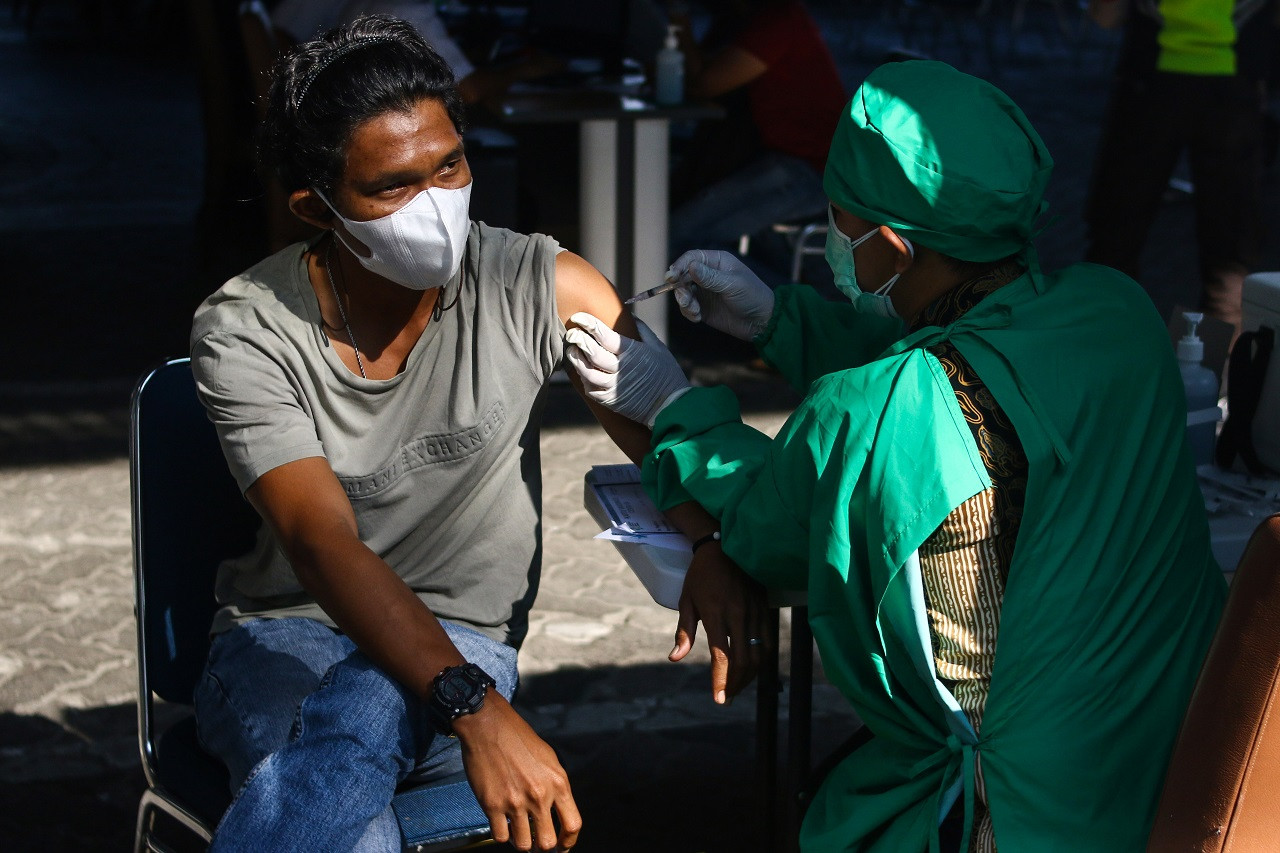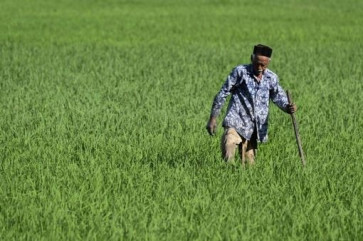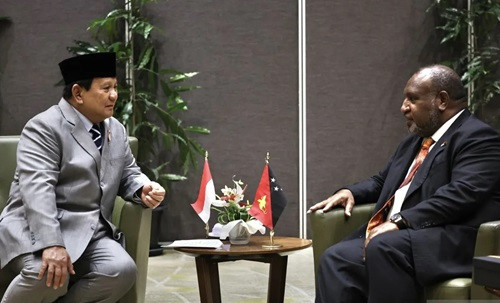RI banks on vaccines as virus crisis deepens
Daily infections, deaths break new records on Monday
Change text size
Gift Premium Articles
to Anyone

The government is fast-tracking its vaccine procurement deals and scaling up the national vaccination program as part of a larger effort under the new round of restrictions to curb the alarming surge in COVID-19 cases.
After a week of record-breaking figures of more than over 20,000 cases per day, the government imposed on Saturday the emergency public activity restrictions (PPKM Darurat) through to July 20. On Monday, Indonesia broke its previous daily record of 27,233 new cases and 555 deaths on Sunday with 29,745 new infections and 558 deaths. Many hospitals in Java are overwhelmed with patients and running out of oxygen.
Last Thursday, Indonesia received 998,400 doses of the ready-to-use AstraZeneca vaccine from Japan, which promised to donate up to 2 million doses this month.
With the recent addition of over 9.2 million AstraZeneca doses, mostly through the global COVAX Facility, and 2 million doses of China’s Sinopharm vaccine, Indonesia has received over 119 million vaccine doses in total as of July 1.
The majority of the country’s vaccine supply consists of CoronaVac vaccine bulk from Chinese pharmaceutical Sinovac, which must be processed into vials of individual doses before they can be administered. This process is done by state-owned pharmaceutical company PT Bio Farma in Bandung, and often results in the wastage of millions of doses.
It is estimated that the country had around 99.2 million doses of the three brands, including wastage, since the mass vaccination program started in January.
Read also: Darkest days ahead: Deaths surge in Indonesia as health facilities collapse
Despite senior citizens being among the vulnerable groups prioritized in the second phase of the national vaccination driver, barely 22 percent of the elderly population has received the first of two doses required for full vaccination.
Nevertheless, the government went ahead with rolling out its third vaccination phase for the wider public in several provinces in late May.
Children aged 12 to 17 are now eligible to be vaccinated after the Food and Drug Monitoring Agency (BPOM) approved CoronaVac’s use last week for this age group.
Indonesia has administered about 42 million vaccine doses to date for targeted recipients. But with a 270 million-strong population, its vaccination rate remains low at just 11 percent of the population receiving at least one dose and only 4.8 percent fully vaccinated.
Read also: Jakarta expedites jab drive as cases spike
President Joko Widodo said early this month that the country must scale up the national vaccine drive to 1 million jabs per day and push to achieve a target of 2.5 million shots per day, with support from the government-backed Gotong Royong private vaccination scheme.
“This is indeed no small feat, but we have managed to vaccinate 1.3 million [people in a single day]. I believe increasing this to 2.5 million will not be difficult, as long as we have the vaccines,” the President said.
He was referring to June 26, when Health Minister Budi Gunadi Sadikin announced the inoculation of 1.3 million people.
While the government’s vaccine rollout lost pace in late March due to production delays, Budi said more vaccine doses would be arriving in the second half of the year through the COVAX facility and shipments from Pfizer in August.
“Hopefully, by the end of the year, 181.5 million Indonesian citizens will have received at least their first shot,” he added.
This amounts to 70 percent of the population, the government’s benchmark for achieving “herd immunity” against the disease, which is still under study by the global scientific community. Global concerns continue to grow over how well the different vaccines will protect against the more virulent COVID-19 variants, such as the most recently discovered “Delta plus” strain in India.
Read also: Delta variant behind Indonesia’s recent COVID-19 surge, officials say
Meanwhile, the World Health Organization (WHO) stated in the June 29 weekly epidemiological update that “the Delta variant is expected to rapidly outcompete other variants and become the dominant variant over the coming months”. It also said that “96 countries have reported cases of the Delta variant, though this is likely an underestimate” due to limited capacity in genome sequencing.
Foreign Minister Retno Marsudi launched Indonesia’s vaccine diplomacy campaign last week while attending G20 meetings in Naples, Italy, and bilateral meetings with her counterparts from several nations.
Retno secured Japan’s donation of 2 million doses on the sidelines of the G20 meetings. She also secured 3 million doses of an unspecified vaccine from the Netherlands and sealed a deal on cooperation over therapeutic drugs during her visit to the Hague last week.
Read also: Japan to send 2 million vaccine doses amid Indonesia's worst COVID-19 wave
In addition, the United Kingdom has expressed its commitment to sharing its vaccines with Indonesia, although the details are still being discussed.
Retno said Indonesia was set to receive 4 million doses of the Moderna vaccine from the United States, following the BPOM’s emergency use authorization for the vaccine on Friday.
The Moderna vaccine is among 54 million vaccine doses Indonesia is to receive through the COVAX Facility, which aims to supply vaccines to 20 percent of the world's population.
Epidemiologist Tri Yunis Miko Wahyono from the University of Indonesia said a clear target could help the government keep tabs on its vaccine drive, considering that the health system was on the brink of collapse due to the unprecedented surge in cases made worse by the more transmissible Delta variant.
Tri Yunis said, however, that the vaccination drive’s success would depend on not only supply, but also the health system’s readiness in distributing the vaccines and the government's strategy in overcoming vaccine hesitancy.
“We need to consider the capacity of vaccinators, too,” he said.









